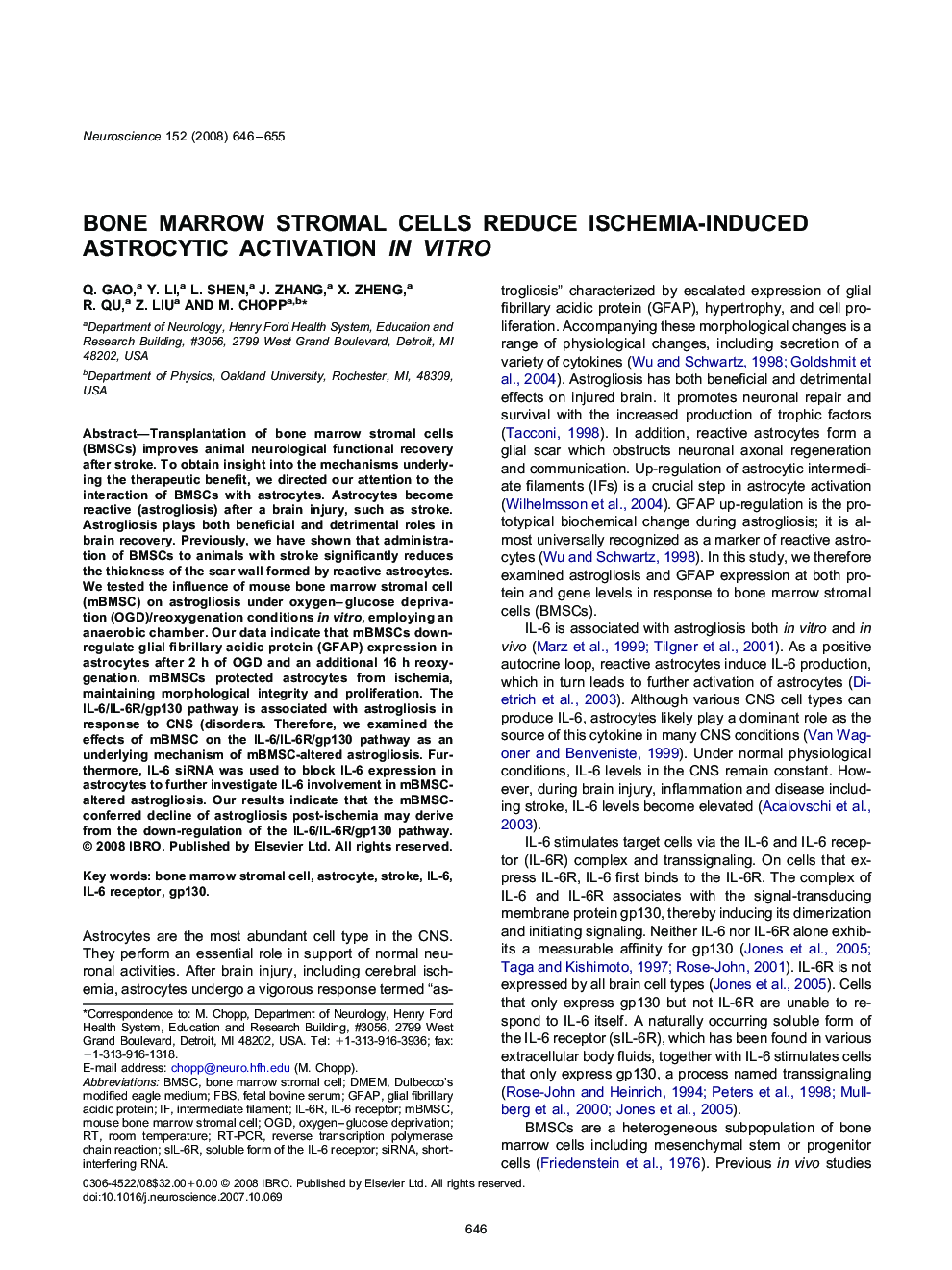| Article ID | Journal | Published Year | Pages | File Type |
|---|---|---|---|---|
| 4340893 | Neuroscience | 2008 | 10 Pages |
Transplantation of bone marrow stromal cells (BMSCs) improves animal neurological functional recovery after stroke. To obtain insight into the mechanisms underlying the therapeutic benefit, we directed our attention to the interaction of BMSCs with astrocytes. Astrocytes become reactive (astrogliosis) after a brain injury, such as stroke. Astrogliosis plays both beneficial and detrimental roles in brain recovery. Previously, we have shown that administration of BMSCs to animals with stroke significantly reduces the thickness of the scar wall formed by reactive astrocytes. We tested the influence of mouse bone marrow stromal cell (mBMSC) on astrogliosis under oxygen–glucose deprivation (OGD)/reoxygenation conditions in vitro, employing an anaerobic chamber. Our data indicate that mBMSCs down-regulate glial fibrillary acidic protein (GFAP) expression in astrocytes after 2 h of OGD and an additional 16 h reoxygenation. mBMSCs protected astrocytes from ischemia, maintaining morphological integrity and proliferation. The IL-6/IL-6R/gp130 pathway is associated with astrogliosis in response to CNS (disorders. Therefore, we examined the effects of mBMSC on the IL-6/IL-6R/gp130 pathway as an underlying mechanism of mBMSC-altered astrogliosis. Furthermore, IL-6 siRNA was used to block IL-6 expression in astrocytes to further investigate IL-6 involvement in mBMSC-altered astrogliosis. Our results indicate that the mBMSC-conferred decline of astrogliosis post-ischemia may derive from the down-regulation of the IL-6/IL-6R/gp130 pathway.
